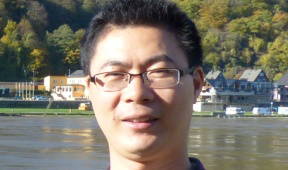ZHOU ZHONGGAO: Innovation needed for second ‘demographic dividend’
 Since reform and opening-up, the first “demographic dividend” has greatly contributed to China’s rapid economic growth. However, China’s population now faces a series of problems, such as a structural imbalance and dwindling competitiveness. Academia has therefore put forward the second “demographic dividend” that stresses the population’s social and economic contributions without being restricted to age structure.
Since reform and opening-up, the first “demographic dividend” has greatly contributed to China’s rapid economic growth. However, China’s population now faces a series of problems, such as a structural imbalance and dwindling competitiveness. Academia has therefore put forward the second “demographic dividend” that stresses the population’s social and economic contributions without being restricted to age structure.
Increased savings resulting from extended life expectancy, a growing high-quality labor force, the release of population potential amid new-type urbanization and system reforms in education, employment, household registration and elderly social security will have a positive impact on economic growth as part of the second “demographic dividend.” The key to obtaining the second “demographic dividend” is forming institutional arrangements beneficial to human capital development, economic capital accumulation and social capital operation through deepened reforms, fully stimulating people’s enthusiasm and creativity to boost economic growth.
First, cultivation and exploitation of human capital should be enhanced through institutional innovation in education and employment. Utilization of human capital is a new opportunity and impetus of national economic development. However, human capital should be exploited in proper ways to obtain the second “demographic dividend.” Low employment of university graduates indicates that labor productivity cannot necessarily be promoted by improving the educational level of the labor force. Obviously, it is necessary to reform the higher education system and actively develop vocational and technical education.
Importance should be attached to the cultivation of technical, professional and interdisciplinary talents. Meanwhile, employment training should be perfected. Training in employment is an essential means of human capital enhancement. A high-quality employment training system will provide important guarantees for the acquirement of the second “demographic dividend.”
Second, reasonable accumulation of economic capital should be facilitated by perfecting the public service system. The current imperfect public service system is hindering economic capital accumulation. Currently, deepened reforms in the fields of education, culture, health, housing and social security are urgently needed to accumulate economic capital and mitigate effects of the aging population.
Finally, positive operation of social capital should be enhanced through innovation to the social governance system. Social capital refers to interrelations among individuals. Mutual benefit and trust generated in social networks can boost social efficiency and increase gains of economic (material) and human capital.
In China, social capital usually refers to “social relations,” including bribery. These relations have hindered normal operation of social capital and suppressed the realization of personal value. To achieve the second “demographic dividend” through deepened reform, innovation in social governance and reshaping of social norms are needed to stimulate individuals’ creative potential and give full play to their wisdom.
Overall, the second “demographic dividend” is rich in potential yet scarce. In the “new normal,” innovation is at the core of advancing sustainable economic and social development. The essence of achieving the second “demographic dividend” is to foster creative talents to facilitate economic development and social progress through deepened reforms and institutional innovation.
Zhou Zhonggao is a research fellow from the Institute of Sociology and Demography at Guangdong Academy of Social Sciences.

 PRINT
PRINT CLOSE
CLOSE